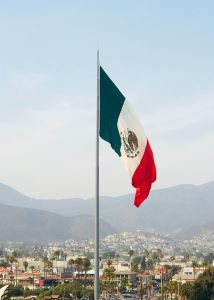Extreme Hardship Waivers for Immigration Violations and Crimes
Certain conduct will make an immigrant ineligible for a visa or admission to the United States ("inadmissible"). Fortunately, discretionary waivers exist to forgive many of these grounds of inadmissibility. Often, they require a showing of extreme hardship and a favorable exercise of discretion.
An immigrant may be inadmissible for immigration violations, such as entry without inspection (EWI), a prior removal order, past unlawful presence, fraud or misrepresentation, or alien smuggling. Conviction of, or admission to, certain crimes will also make an immigrant inadmissible. Those crimes include crimes involving moral turpitude (CIMT), controlled substance offenses, multiple convictions with a sentence to 5 or more years, and involvement in prostitution.
The discretionary waivers for unlawful presence, fraud or misrepresentation, a crime of moral turpitude, or a minor marijuana offense usually require: (1) the existence of a relationship to a qualifying U.S. citizen or permanent resident family member; (2) a showing that denial of the waiver would result in extreme hardship to the qualifying family member; and (3) a favorable exercise of discretion. Certain violent criminal offenses require a higher level of hardship. Some nonviolent crimes that occurred more than 15 years ago and some immigration violations do not require a showing of hardship.
Standard I-601 Inadmissibility Waiver Process
An immigrant may be found inadmissible either at the time of applying for permanent resident status or after obtaining that status when the permanent resident seeks readmission to the U.S. from abroad. Once an immigration or consular officer finds an immigrant inadmissible, the immigrant may apply for a waiver if eligible. An applicant for adjustment of status in the United States who knows he or she is inadmissible and eligible for a waiver does not need to wait for the finding of inadmissibility. He or she may file the waiver application along with the application to adjust status.
Either way, the applicant uses Form I-601 in most cases (see also Form I-212 below). Approval of the waiver overcomes the ground of inadmissibility and permits the admission of the applicant if the applicant meets all of the other requirements to immigrate. Unfortunately, it often takes several months for USCIS to decide an I-601. That can be a significant problem if the applicant is waiting for the decision outside of the United States.
I-601A Provisional Waiver Process for Prior Unlawful Presence
The I-601A provisional waiver process is for applicants for an immigrant visa abroad who are inadmissible only for unlawful presence. Attorney Scott Mossman has represented many of these immigrants. Most of these clients are Mexican nationals who applied for a visa at the U.S. consulate in Ciudad Juarez.
For applicants who qualify, the I-601A process is much better than the I-601 process. It secures a decision on the waiver before they leave the U.S. That means less time apart from U.S. citizen or permanent resident family members. An approved I-601A also gives the immigrant assurance that he or she will be allowed to return legally—at least so long as no unexpected issues arise at the consulate. The process previously was available only to persons immigrating through a U.S. citizen spouse, parent, or child. Now it is open to all immigrant visa applicants who otherwise qualify for a waiver of unlawful presence.
For I-601A processing, the immigrant must first have a basis for immigrating. This may be either an approved family-based petition (I-130) or employment-based petition (I-140). It also includes selection for the diversity visa lottery, although our firm does not accept diversity visa cases. After approval of the immigrant petition, the immigrant files a Form I-601A with USCIS. The immigrant files this application during the process of applying for an immigrant visa, but before leaving the U.S.
USCIS will approve the I-601A if the immigrant proves two things. First, the immigrant must prove that denial would cause extreme hardship to a U.S. citizen or permanent resident spouse or parent (hardship to children does not count directly). Second, the immigrant must prove he or she deserves a favorable exercise of discretion.
Approval of the I-601A results in a "provisional" waiver. That means the waiver will automatically be approved when the immigrant leaves the U.S., attends a visa interview, and a consular officer determines that no other ground of inadmissibility applies.
The I-601A will be revoked if the consular officer finds the applicant inadmissible on any basis other than departure from the U.S. after unlawful presence. So, an applicant should obtain a thorough admissibility evaluation by an immigration attorney before attempting this process.
I-212 Permission to Reapply for Admission After Removal
Past removal or deportation from the United States is another common ground of inadmissibility. Removal makes a noncitizen ineligible to return for 5, 10, or 20 years, depending on the circumstances. A removed noncitizen is ineligible to return for life if he or she has an aggravated felony conviction. Before such a person reapplies for admission to the U.S., he or she must obtain an approved Form I-212. An I-212 does not require a showing of extreme hardship, but the decision is highly discretionary. An applicant must prove that the reasons for permitting return to the U.S. and any other positive factors outweigh the reason for the removal order and any other misconduct.
Appeal of a Denied Waiver
If USCIS errs on the law or makes an unreasonable decision in a waiver case, Attorney Scott Mossman can assist you with appealing it to the Administrative Appeals Office (AAO). His successful AAO appeals include:
- Approval of 212(a)(9)(B)(v) Waiver of Inadmissibility for Departure After Unlawful Presence of More Than One Year and Approval of I-212 Application for Advance Permission to Reapply for Admission After Deportation or Removal
Note, these successful appeals are not a guarantee or assurance that USCIS will approve your waiver if you hire Scott. USCIS reviews each case individually according to its facts.
